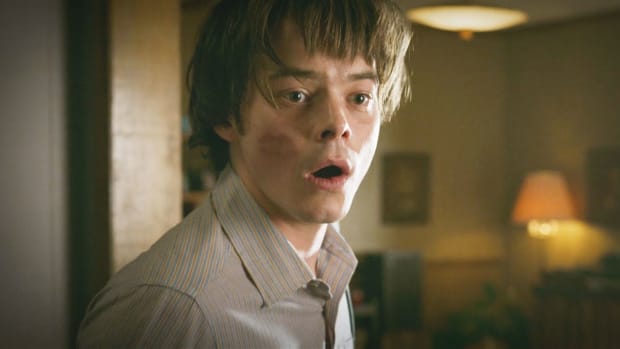The only constant is change.
Times change, social mores change, ideas about what is acceptable change, audiences change and creators change.
Unless you were born perfect or you have absolutely no capacity for self-reflection (and therefore, no ability to mature) you’ve likely said or done something you regret or wish you could take back, be it an unkind comment, a problematic Halloween costume or perhaps a piece of art that hasn’t aged well.
For most of us, we have no recourse other than self-reflection, and to resolve to do better in the future, and perhaps to apologize.
But the people who make films and movies have the ability to change the past in ways that the rest of us do not.
The trend of an artist changing their completed work truly crystalized when George Lucas’s “Star Wars” films were re-released in theaters in 1997 ahead of the prequels.
The films’ special effects and storylines were updated in ways that ultimately angered fans; to this day there are still people very, very insistent that “Han Shot First,” and salty that the original flavor films aren’t available to stream anywhere.
As physical media has slowly given way to digital, artists now have the ability to endlessly revise supposedly finished work. (See Kanye West’s promise to “fix” his song “Wolves” from the album “Life of Pablo.”)
But a move by Matt and Ross Duffer, creators of “Stranger Things,” has prompted questions about when good intentions could lead to a slippery slope.
The Duffers Updated 'Stranger Things'
As reported by GQ UK, fans have discovered that the Duffer Brothers have made some updates to episodes of their Netflix (NFLX) hit “Stranger Things” from several years ago.
One of them pertains to a fairly innocuous continuity slip-up concerning a character’s birthday that only the most obsessive would notice. (Trust us, it’s not worth going into.)
Rumors have spread that a scene involving the character Jonathan Byers spying, rather creepily, on his eventual girlfriend Nancy Wheeler, was removed, in order to make the character more purely good and heroic, rather than mixed and flawed. (You know, like all people generally are.) But according to GQ, that has proved untrue.
But the Duffer Brothers have confirmed to Variety their intentions to “George Lucas” their previous work, so there’s really nothing stopping them from going this direction, so there’s no reason why they technically couldn’t alter the character of Jonathan because many fans have complained that he looked like a pervert.
Now, this might not seem like a big deal. It is just a TV show, after all. But is endlessly fixing the past a smart idea?

Netflix
We Need To Learn From The Past, Not Fix It
While people will always get their feathers ruffled and feign moral outrage, it’s a good thing that our ideas about gender, race, power imbalances and what constitutes moral behavior are ever in flux. It’s a sign that we, as a society, can move forward. Hopefully.
But while the impulse to change the past so it lines up perfectly with the current climate is understandable, it’s ultimately not a wise idea.
Should the jokes about sexual assault be removed from “Animal House” or the many racist scenes featuring the character Long Duk Dong be altered in the streaming versions of “Sixteen Candles?”
This might make contemporary audiences more comfortable. But it would ultimately only burnish the reputations of directors John Landis and John Hughes, and paint them as something more than they were: flawed people working in a different time who made very unfortunate creative decisions that we can all still learn from.
There’s no easy solution to this problem, but trying to fix the past is arguably as unhelpful as ignoring the problems in old films and shows that make us cringe today.
The best way still to be the approach taken by Disney (DIS) and HBO Max (WBD). “Gone With the Wind” is unquestionably an important film in the history of cinema. It’s also unquestionably racist. In 2020 HBO Max made the decision to include a disclaimer saying the film “Denies the Horrors of Slavery.”
Additionally before the film begins, Turner Classic Movies host and film scholar Jacqueline Stewart discusses “why this 1939 epic drama should be viewed in its original form, contextualized and discussed.” A second panel discussion,“The Complicated Legacy of ‘Gone With the Wind,'” is also included.
It's also well known that Disney has a long legacy of cartoons that now make parents gasp.
Some of those are hidden away in the vault, such as “Song of the South.” While other films with problematic elements such as “Lady And The Tramp,” (the Siamese Cats have long been viewed as an egregious Asian stereotype) are now prefaced with the disclaimer: “These stereotypes were wrong then and are wrong now. Rather than remove this content, we want to acknowledge its harmful impact, learn from it and spark conversation to create a more inclusive future together.”
This doesn’t fix the old movies and their uncomfortable elements, but they shouldn’t be fixed. It’s never helpful to pretend that the past is anything other than it is. Instead, problematic old films can stand as an important lesson for how things were, how far we’ve come, and how much farther we still need to go.







